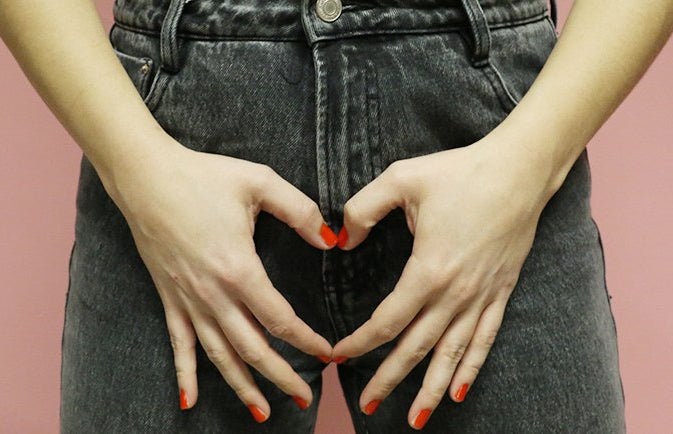“Close your legs.” “Be careful: pregnancy can ruin your life.” “Wait until marriage.” “Don’t show too much.” I grew up listening to these seemingly harmless comments over and over again. So, it’s no surprise that I ended up believing them in time.
Even as a little girl, I would avoid wearing shorts or “revealing” clothes if any male guests or my brother’s friends ever came to visit my family. After years of institutionalized moral and religious discourses, both at home and at school, I fit perfectly within the definition of a “well-behaved” girl. The idea of “preserving my virginity” and being modest was deeply ingrained in my everyday mindset because I believed that the respect I deserved was strictly linked to my behavior.
Without being consciously aware, I had subscribed myself to patriarchal norms that were created to keep women small, silent, convenient, modest and unable to fully express their true selves.
That is, I was taught not to take up too much space, to not speak too loud, and to always stay in my lane. So, for a long time, I did. Somehow I felt like women who didn’t belong to this category of “good girls” were subpar to me. According to this mindset, while I was a “respectable” young lady, all the other ones who did not adhere to these social norms, well… were simply slutty girls, unworthy of the same respect I had earned throughout the years. In my mind, Nicole was incapable of ever becoming that girl.
And then, I changed. But this change wasn’t sudden; it was the result of enrolling myself in women and gender studies, experiencing a series of emotional breakdowns and feeling this intense desire to put an end to all the bullshit I had been brainwashed with over the years.
I became that girl. My body started to feel mine for the first time in my life and, little by little, confidence just flowed through every single one of my pores. Sex, flings, dates, guys, no-strings-attached: these words were no longer foreign to me. Although my hoe phase had just begun, I didn’t feel slutty, or used, or broken, or dirty, or sick, or nasty. I just felt like me.
As time passed, I became a stranger to the shame and disgust associated with living in a sex-negative world. In fact, I was a big supporter of the things I had learned in sex educator Emily Nagoski’s book Come as You Are: The Surprising New Science that Will Transform Your Sex Life.
“No girl is born hating her body or feeling ashamed of her sexuality. You had to learn that. No girl is born worried that she’ll be judged if someone finds out the kind of sex she enjoys. You had to learn that, too. You have to learn, as well, that it is safe to be loved, safe to be your authentic self, safe to be sexual with another person, or even safe to be on your own,” she wrote (and I trusted her).
It’s funny how I believed all of these sex-positive ideals until, one day, I felt like there was something wrong with me. Because I had become that girl, I was suddenly subject to a man’s unsolicited opinions about my sexuality. I also never thought that could ever happen to me, but it did. Out of the blue, he called me a nymphomaniac and I almost fell apart.
And there I was: a strong, confident, empowered woman ready to conquer the world against all odds, yet crushed at the expense of a phallocentric comment. The irony.
“How often do you have sex?” “How often do you think about sex?” “How many people have you slept with?” And he, who doesn’t deserve being named, just went on and on until he “diagnosed” me with nymphomania based on his experience with past partners, sexual criteria and barely-significant background in psychology.
Of course, I knew that sexual promiscuity is relative, and I was outraged at the way that this guy was policing my sexuality. I was also well aware that nymphomania is an outdated term that has been historically used to villify and pathologize women with an “insatiable” sexual desire.
Despite my knowledge on the subject, at the moment, something within me froze. I didn’t know how to react to his claims. And, later on, when I found myself alone, thinking about the whole situation, my body started to feel his. This time, I really felt slutty, and used, and broken, and dirty, and sick, and nasty. I just didn’t feel like me.
And then, I saw myself as the living example of Roxane Gay’s Bad Feminist depiction. How can I allow a cis-hetero man with an evidently fragile masculinity to have power over how I feel about my sexuality and then support the empowerment of all women?
The truth is that I don’t have an answer and that it doesn’t make sense. But one thing’s for sure, “I’m full of contradictions, but I also don’t want to be treated like shit for being a woman.” Like everyone else, I’m not exempt from the systems that perpetuate violent behaviors and aggressions towards women.
Even girls who know what they need, want and deserve can be slut-shamed too.
Most of the time, men who lack confidence participate in predatory behavior against women as a means to feel better about their own internal struggles. In other words, slut-shamers engage in such conducts because they’re simply projecting their insecurities on others. They can only tolerate slutty behavior when it benefits them, and that’s just sad.
So, what can we do about all these toxic tendencies in the month that celebrates love? Yes, flowers are cute, and I love them (yeah, I wouldn’t mind getting some). Yes, dates are great, and I love them (and I wouldn’t mind going to one). Yes, chocolates are the best things ever, and I love them (and I wouldn’t mind eating lots of them). But some gifts don’t, in fact, require money.
Some girls don’t want a bed full of roses and teddy bears to feel good about themselves (even though it’s okay if you do). For instance, you could start by asking for consent, instead of assuming that somebody else would like to do something with you on V-Day. Or you could reevaluate your behavior, work on your issues and maybe go to therapy. Or even better, you can redirect your energy to focus on yourself and stop slut-shaming other people for their life choices. Realize that neither you nor anyone, for that matter, is entitled to receive or owed an explanation about other women’s likes and wants if they do not choose to disclose this information in the first place.
It’s simple: live and let live. Let us bear our sexualities in any way that we choose to without the need to supervise or police them. I love chocolate, flowers and dates, but I enjoy self-growth so much more. My Valentine’s Day wish truly is that the world stops slut-shaming women who own their sexuality.


